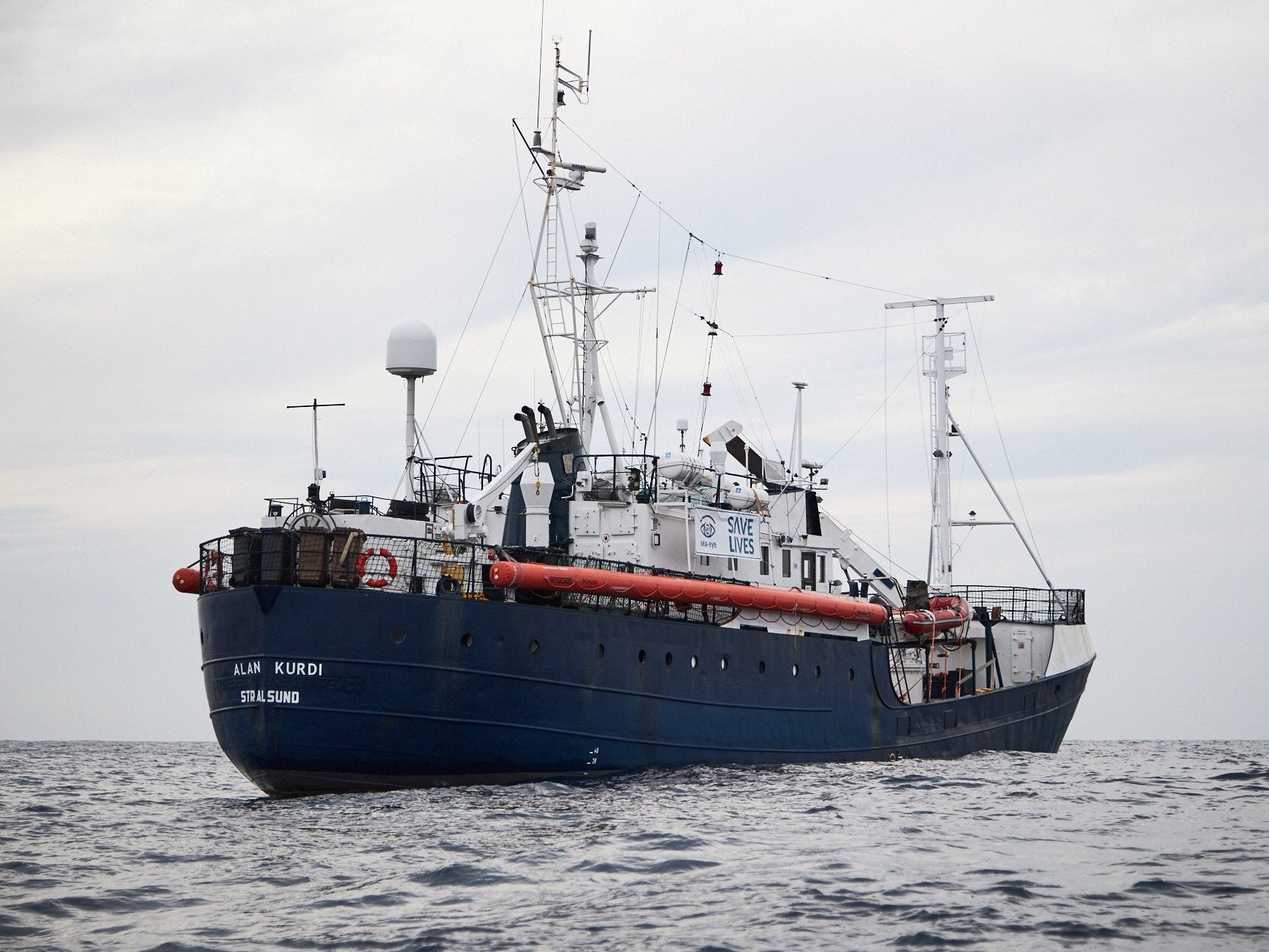Refugee rescue ship running out of food and water with 64 on board as European countries argue over who should let it dock
A newborn baby, five children and 20 women are among those on board the stranded vessel

A ship carrying 64 refugees is stranded at sea and running out of food and drinking water while European countries refuse to let it dock.
The Alan Kurdi is a private rescue ship owned by Sea-Eye, a German NGO.
The group on the vessel includes 20 women, five children and one newborn baby, according to a spokesperson for Sea-Eye.
Staff on board rescued the group of refugees from a rubber dinghy near the Libyan coast last week and asked Italy and Malta, the two nearest countries, to open a port so the ship could dock.
But both countries refuse to accept humanitarian ships that patrol the Mediterranean to rescue refugees.
The Alan Kurdi has now spent six days at sea as European countries argue over who should accept the vessel.
Matteo Salvini, Italy’s anti-immigration deputy prime minister, said the rescue ship was not welcome in the country.
In pictures: A day of refugee rescues in the Mediterranean Sea
Show all 7“A ship with a German flag, German NGO, German ship owner, captain from Hamburg. It responded in Libyan waters and asks for a safe port,” he said.
“Good, go to Hamburg.”
As supplies on the vessel run low, the European Union (EU) has entered discussions with its member states.
On Tuesday, Sea-Eye said it had informed Malta, which is nearest to the boat, about the scarcity of food on board.
Dominik Reisinger, a spokesperson for the organisation, said the “political question about the distribution of those rescued ... overshadows the human rights” of the refugees.
The vessel’s difficulties come after the aid organisation Médecins Sans Frontières (MSF) ended its refugee rescue missions in the area.
In December 2018, the group’s rescue vessel, Aquarius, was withdrawn from operations after what MSF alleged was a “sustained smear campaign” led by the Italian government.
Operation Sophia, the EU’s maritime rescue mission, has also been downgraded, in a move that was condemned by rights groups and charities when it was announced in March 2019.
The EU mission was credited with saving thousands of lives but no longer carries out maritime patrols in the Mediterranean, after Italy refused to receive the people rescued at sea.
A spokesperson for Amnesty International described the decision as an “outrageous abdication of EU governments’ responsibilities”.
The Alan Kurdi is named after the three-year-old boy whose body was found on a beach in Turkey in September 2015 at the height of the refugee crisis.
Additional reporting by agencies
Subscribe to Independent Premium to bookmark this article
Want to bookmark your favourite articles and stories to read or reference later? Start your Independent Premium subscription today.

Join our commenting forum
Join thought-provoking conversations, follow other Independent readers and see their replies